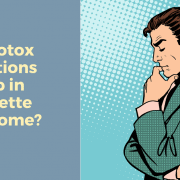Can Natural Treatments Help a Chronic Multifocal Tic Disorder?
In treating her son for Tourette syndrome, Caryn Talty found that guten and corn are the main triggers for her child’s tics and behavioral problems. After making strict dietary changes and introducing nutrients, she reports that his major tics are gone. She is the author of Cilie Yak is Under Attack, a story about a boy with celiac disease.
If you have found yourself here after a Google search about “tics,” you may have already been to a doctor about a few chronic twitches or muscle spasms that won’t go away. After a consultation, you may have been given a diagnosis and possibly been disappointed too when you discovered that there is no known medical cure. If you are like us, and have a child diagnosed with a chronic multifocal tic disorder (tics in different locations on the body), you could have also been told by your doctor that medication, while available, does not come without side effects, and that the best treatment is to ignore the tics and carry on with your life, business as usual and hope that they fade over time.
This is basically what happened to us two years ago when we took our then almost 4-year-old son to a neurologist after he began to exhibit noticeable ticcing behaviors during the Christmas holidays. This is our story, and I attempt to tell it in hopes that other folks who find themselves reading this narrative may find a bit of usable knowledge and above all else, hope.
About 20 percent of children may develop tics at some point during their prepubescent years. Usually mild cases involve eye blinking or nose scrunching and are pretty benign in nature. I was never aware of them, quite honestly, until my oldest son developed tics about two years ago after we took him for his preschool vaccines.
Since the fall and winter of 2006, I’ve noticed that mild tics are fairly common in the public. Most kids who develop them are pretty good at creatively making them a discrete part of their lives. Most folks who have kids with tics notice that they wax and wane in unpredictable cyclic fashion, often times correlating with allergy seasons or viral and bacterial outbreaks. Some see waxing and waning correlate with diet. For others there is no known correlation between tics and environmental or dietary influence. Others claim that stress is a major factor in the development of tics. If you pay attention to folks while at the airport or a crowded shopping mall you may find one or two twitchy ones passing you by.
In our case what we saw was an increase in tics that seemed to pick up speed and intensity, like a snowball rolling down hill, over the course of three months. What started with a chronic sniffing that we originally missed as a tic, was soon combined with a mild, benign eye blinking tic. When the sniffing and eye blinking was accompanied by a slow exaggerated blink and shoulder shrug we knew we had something serious we were dealing with. More movements and sounds followed: teeth grinding, lip smacking, sleeve pushing, grimacing and neck twitching. Now our son had a whole host of dysfunctional movements and sounds that began to impede on his daily activities. He began to develop very real fears, anxieties, and routines that seemed uncharacteristic of his little developing personality.
Our original neurologist told us that despite the severity of our son’s condition, because his tics were only present a few short months, we would need to wait a full year from onset to diagnose him with Tourette Syndrome and begin our prescription of Topamax. She advised us to just ignore the tics and do the best we can. In her defense, she claimed that oftentimes tics disappear and don’t return (also known as transient tics). So she was hopeful that we would see a reduction in the behaviors and movements without the need to diagnose or medicate our very young child.
I left the office with such fear and disappointment pumping through my veins. I was unnerved and felt completely helpless. So I fought back by making it my business to read as much as I could about this condition and try to help my son as much as possible before coming back to the neurologist in the summer for our prescription. What happened over those next six months was nothing short of a miracle in my mind, as our son made a slow and steady recovery. We never did make it back to the neurologist’s office, and our son has never been prescribed medication for tics. Instead, we chose to visit a pediatric physician who practices at the Pfeiffer Treatment Center in Warrenville, IL. This doctor uses much of the protocol developed in the Defeat Autism Now movement.
Our son is now in what I consider remission and is developing normally both physically and mentally. We have a special diet and supplement regime that we have tailored specifically for our son’s needs based on blood, urine, hair, and genetic testing. Much of what we learned has been researched and reported by many doctors and specialists in several areas of medicine and nutrition.
We know that the improvement is from these efforts because we have seen increases in his tics when he has been exposed to his specific triggers, such as gluten or corn, and improvements in his condition after we made these specific changes.









